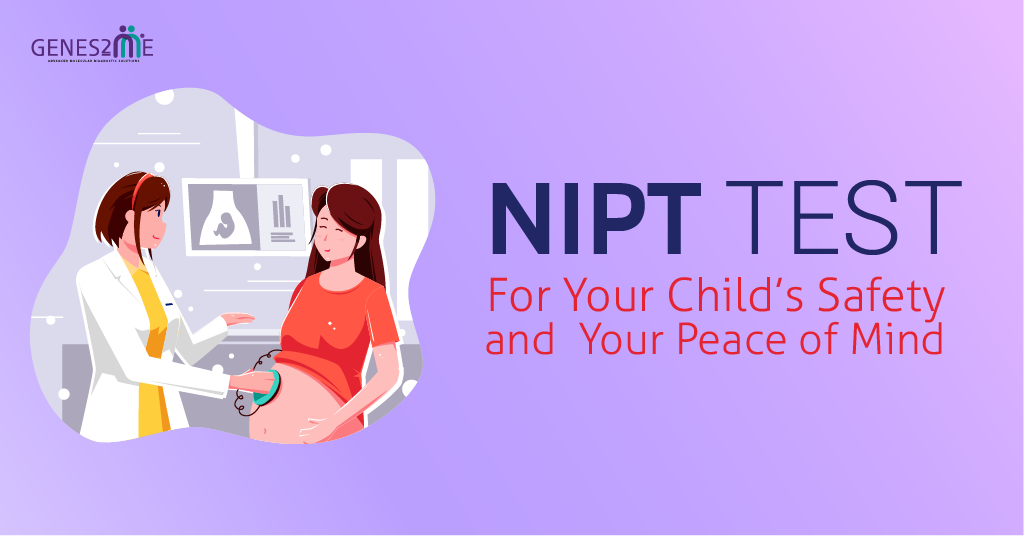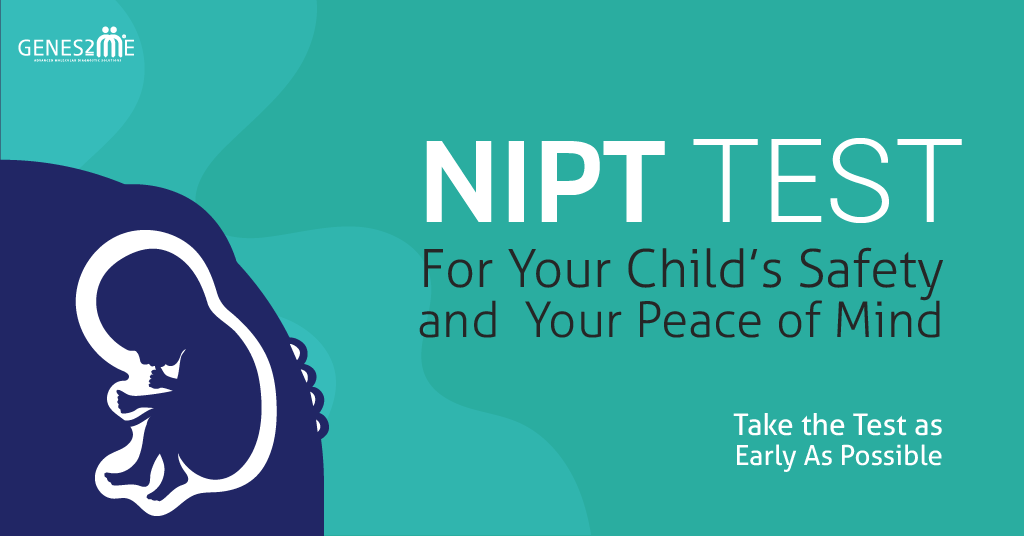Noninvasive Prenatal Testing For Expecting Mothers

Non-Invasive Prenatal Testing (NIPT) is screening test during pregnancy in India that identifies chromosomal aberrations in the growing foetus. The NIPT test looks for a small amount of the baby’s DNA circulating in the mother’s bloodstream, also known as cell-free DNA or cfDNA.
The blood is drawn from the expectant mother in the same way as any other lab. The blood sample is sent to the best NIPT best lab in India to screen for chromosomal aberrations. The NIPT test during pregnancy cost is minimal compared to the information you will receive about your baby’s genetic profile.
Who Should Take the NIPT test?
For every pregnant woman, NIPT is recommended as per the latest guidelines of the American College of Obstetricians and Gynecologists (ACOG).
Don’t get worried if your doctor recommends NIPT screening for you. It does not mean that he or she suspects that something is wrong with your fetus. Traditionally, NIPT test in pregnancy was recommended only for women over the age of 35 and who had a family of chromosomal disorders.
The doctor suggests NIPT for older aged couples now a day. The best NIPT test labs in India are safer and more readily available; therefore, they are more widely recommended.
The most important thing is that families get to decide what will happen if the NIPT test is positive. It means that if your pregnancy is at a higher risk for a chromosomal problem, you may need to discuss with your partner and practitioner on the next course of events.
Another thing that is important to remember is that NIPT is considered screening tests. It means that they can only tell you about the probability of high risk of your baby having a chromosomal issue. But it does not necessarily mean that there is a definite sense of genetic problem in your child. You would need to have a diagnostic test for confirmation about your baby’s genetic status.
Also, NIPT tests have limitations if you’re pregnant with twins or other multiples and in case if expectant mother is obese.
When to Take the NIPT Test?
The best NIPT test in India recommends going as early as your 10th week of pregnancy. Ideally, whether or not to take the test should be decided as early as possible in pregnancy before your first prenatal visit.
Then, based on your medical and familial history, you could decide on your screening options. The best lab for the NIPT test in Delhi provides various prenatal genetic tests from genetic screening to diagnostic to find out about your baby’s health.
What Does NIPT Screen For?
These screenings analyse the most common genetic disorders. There are some of the genetic issues that are included in the test:
Down Syndrome (Trisomy 21)
Edwards Syndrome (Trisomy 18)
Patau Syndrome (Trisomy 13)

What Next After NIPT?
If your NIPT test report comes back as positive, it means that the growing foetus may have a chromosomal disorder. A genetic counsellor from the best lab for NIPT test will discuss with you at length about your personal and medical history and explain what other tests are available.
If any issues in the growing foetus are detected, you can also choose to go through invasive testing by the process of chorionic villus sampling (CVS) or Amniocentesis, depending upon the gestational week. These are considered diagnostic tests rather than screening. This means that they will actually provide a confirmation rather than simply indicate your risk for having a baby who has genetic issues. As a result, these tests are more accurate, but they come with a slight risk to the pregnancy.
Other Genetic Testing Options
The NIPT test does not look for neural tube defects like spina bifida or anencephaly. Therefore, your doctor may recommend second-trimester screenings with ultrasound or maternal serum tests to expectant mothers.
Some parents may opt to skip the best NIPT test and go straight to the diagnostic test for various personal reasons. You can talk to your doctor or genetic counsellor about your preferences, your medical history and what could be your course of action if you receive a diagnosis of a genetic disorder. This positive approach will help you determine the right path for you and your family.
